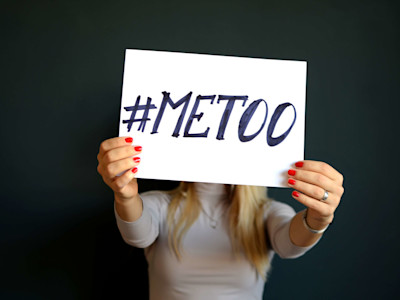Women Only Workplaces Rise In the #MeToo Era

The #MeToo movement continues to produce shockwaves in the modern office environment, with the latest iteration giving rise to women-only workplaces. Women-only coworking spaces are cropping up around the world, first in Stockholm, then New York, and now DC and San Francisco with more planned to open this year. Their purpose? Give women a place to work without the gender politics that go with an integrated office with the express purpose of championing and empowering women.
In a primarily female environment, women are more likely to speak up, share their ideas, and open up about their experiences.
For female freelancers and consultants, this can be an incredible opportunity. In a mixed environment, studies have shown men dominate conversations, more frequently interrupt or talk over women, and perceive women as talking “too much” when they speak a smaller percentage of the time than men during a controlled environment, such as a meeting. There was even a strategy in the Obama administration for women to amplify their fellow women when they voiced an idea that was talked over, interrupted, or worse, co-opted by a man in the meeting. When books called Feminist Fight Club: An Office Survival Manual (For a Sexist Workplace) are necessary, is it such a surprise women-only coworking spaces are on the rise? In a primarily female environment, women are more likely to speak up, share their ideas, and open up about their experiences. So places like The Wing, a women-centric coworking space in New York, DC, and San Francisco, are cropping up. Why?
Empowerment
Entrepreneurial women sometimes need a reminder they’re capable of just as much as a male entrepreneur. By surrounding themselves with successful women, it inspires and pushes them to do more, let their creativity soar, and not censor themselves for the men in the room.
Eliminate Sexual Undertones
It’s unfortunate, but if the #MeToo movement showed us anything, it’s that every workspace comes with inherent biases based on sex, from the mild—men interrupting women, appropriating ideas, or subtle sexism in open offices—to the outright illegal and predatory, such as the behavior of Harvey Weinstein, which sparked #MeToo. In a female-only environment, this simply doesn’t exist. Women are free to get on with their work and pave their path without worrying about sexism and gender politics.
Embracing a Culture
Many women choose membership in these women-only coworking spaces because they work around other women. They feel more content, more of a sense of community when surrounded by other hard-working women in an environment lacking a male-dominated atmosphere.
Networking
One of the biggest reasons people join coworking spaces is for the networking opportunity to work with like-minded, career-driven folks who can inspire and complement each other. Women working with women can give rise to some pretty solid business relationships that aren’t colored by gender perceptions that may call into question the validity of the help. Connecting with women who get the female perspective of the rat race can be just as empowering as knowing that perspective won’t be interrupted or “mansplained.”

Environment
Some women work better in an environment that celebrates them. When the office décor is more feminine in nature, it gives rise to the idea that women are as important in business as men, without saying a single word. For some women, it means they can relax more, and a more relaxed worker is a happier, more productive worker.
Perception Matters
For other women, it’s less about what the furniture looks like than it is about knowing their intelligence and assertive business practices won’t be knocked back. Women speaking with authority in the presence of men are often perceived as aggressive, angry, and equated with predatory behaviors against men. When reputation matters, this perception can cause women to clam up, speak less often, more readily back down in discussions, and in general, take a backseat. In women-only coworking spaces, that fear of reputation smearing isn’t there.
What are the Ethics and Legalities?
The Wing in New York became the subject of an investigation by the New York City Commission for possible violations of the city’s Human Rights Laws, which ban discrimination against customers based on gender. On the heels of that, The Wing in DC was sued by a man seeking damages up to $12 million for discrimination based on his gender. In response, The Wing changed its membership policy to include accepting applicants who can demonstrate a commitment to empowering women and expanding women’s prosperity regardless of their identified gender.
Should business owners and office managers take note of this rising trend in women-centric workplace?
For most businesses, a women-only workforce simply isn’t feasible. Talent scouts are intent on hiring applicants who can do the job to the best of their ability without regard to gender. But considering office politics can play a huge role in employee satisfaction and retention, and the idea that women stifled by men in the office aren’t able to do their best, should business owners and office managers take note of this rising trend in women-centric workplaces and consider if their policies and culture reflect what women are trying to get away from?
Does it help for women to essentially remove themselves from a less-than-supportive environment entirely rather than bring the inequalities to light so they can be addressed? Maybe that’s not what the coworking spaces for women are about. Maybe it’s simply a way to give women somewhere to go where they know they’ll be able to work and speak without gender politics getting in the way. It’s about finding somewhere inspiring and comfortable to work, where they know the work will be the focus rather than on who’s doing the work.
Want to explore more? Check out this related topic:



